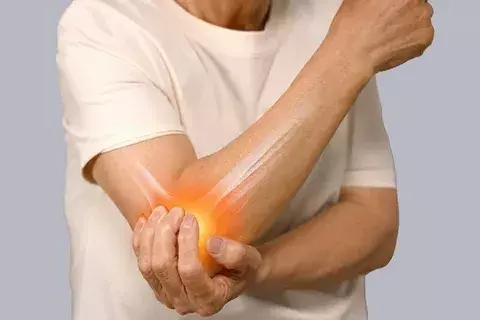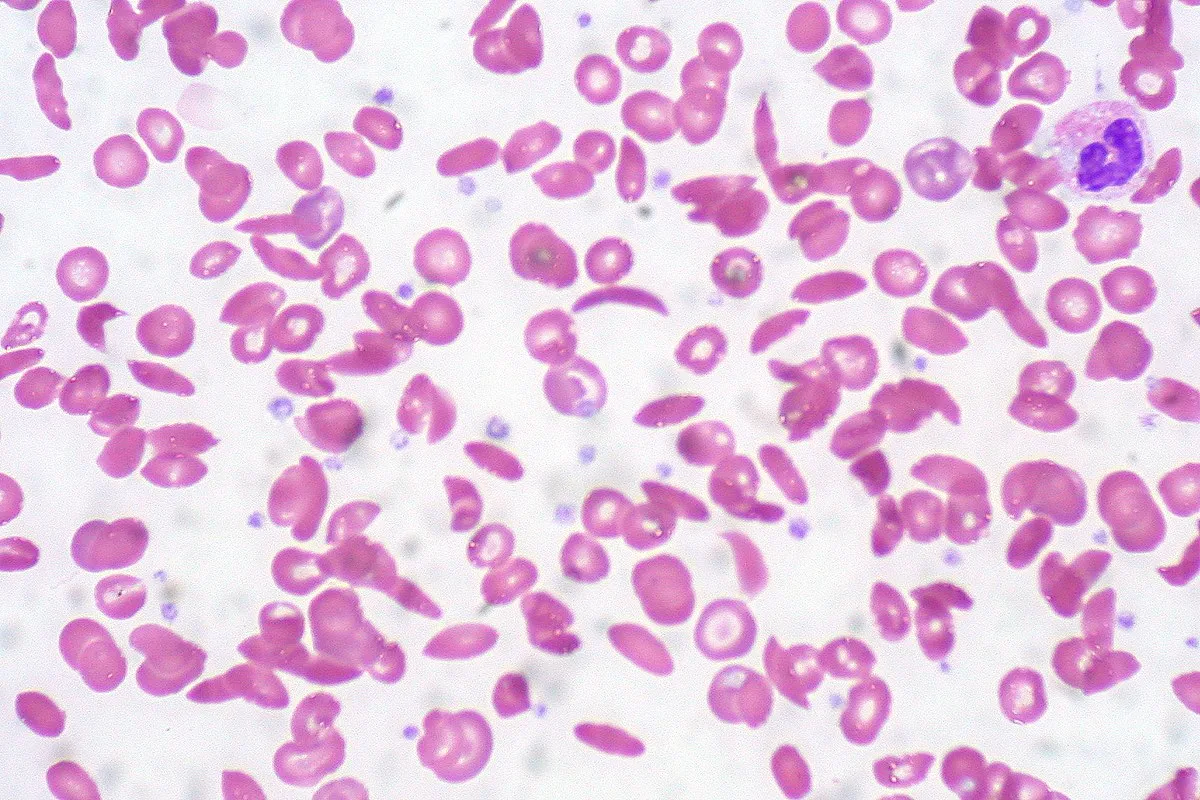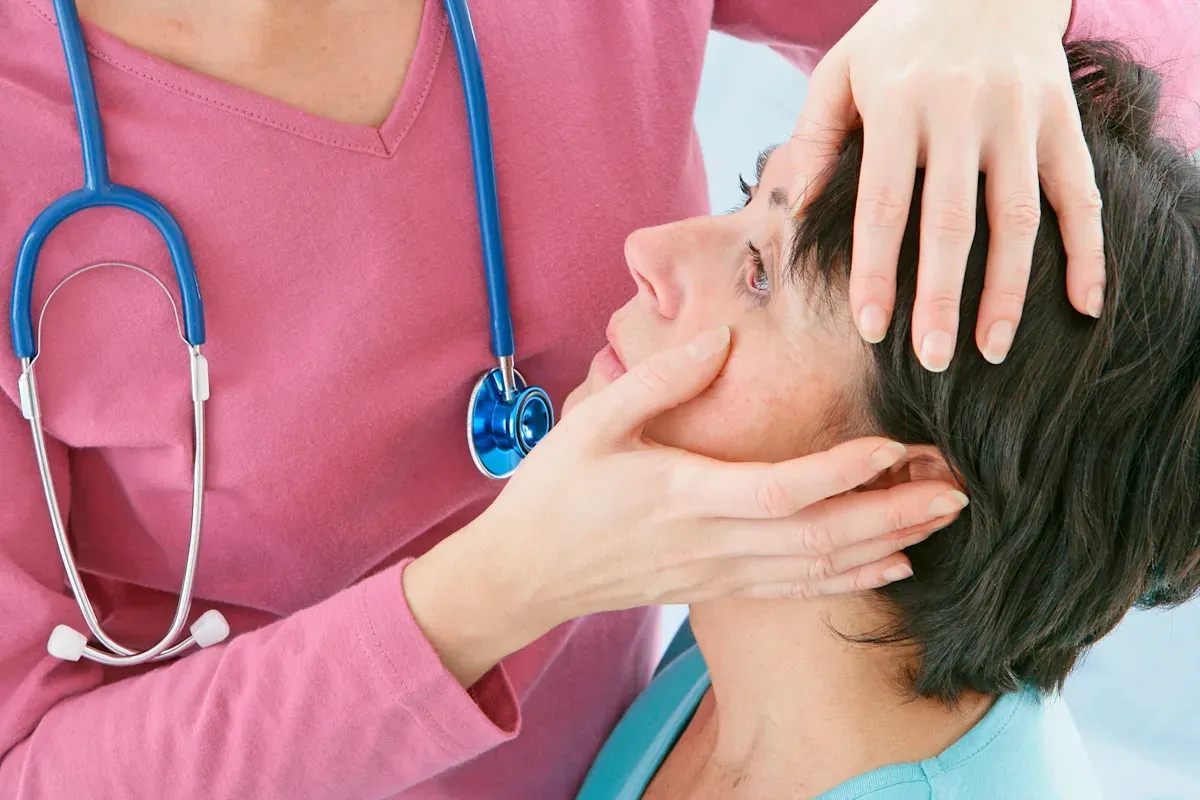Health Check-Up Packages: Importance, Benefits, and Early Detection
A check-up is a routine health assessment aimed at prevention and early detection. Even if you feel well, regular check-up packages help identify potential health issues early, evaluate your risk factors, and keep track of your overall well-being. Also known as an annual physical, routine exam, or health screening, check-up packages are essential for safeguarding your long-term health.
What is a Health Check Up?
A health check-up also known as a general check-up, annual physical, routine exam, or health screening is a thorough medical assessment focused on preventive care. Its main purpose is to detect health issues early, assess your personal risk factors, and promote overall wellness. Regular check-up packages, even when you feel healthy, allow doctors to monitor important health markers, catch potential problems in their earliest stages (when treatment is most effective), and provide you with tailored advice for a healthier, longer life.
Why Are Regular Check-Ups Important?
Many people overlook the long-term benefits of check-up packages, such as early detection of serious illnesses.
- Early Detection of Diseases: Conditions like heart disease, diabetes, and cancer can often be identified early—when treatment is most effective—through regular screenings.
- Preventive Care and Risk Reduction: Check-up packages help identify risk factors such as high blood pressure, high cholesterol, or obesity, enabling early interventions to prevent disease onset.
- Monitoring of Chronic Conditions: For those with existing health issues, check-up packages are essential for tracking progress and adjusting treatment.
- Lower Long-Term Healthcare Costs: By catching problems early, check-up packages reduce the need for emergency treatments or hospitalizations.
It’s crucial to schedule your yearly check-up packages even if you feel perfectly healthy.
Who Needs a Health Check-Up and How Often?
Everyone including those who feel completely healthy should have regular check-up packages to promote early detection and prevention of health issues. How often you need a check-up depends on your age and personal risk factors.
Children and teens require routine developmental exams, adults under 40 should schedule a check-up every 1 to 3 years, and adults over 40 or seniors are typically advised to have annual exams.
Regular check-up packages are vital for maintaining long-term health and catching potential problems before symptoms appear. Even if you feel well, these routine assessments help ensure ongoing wellness and early intervention for silent or developing conditions.
Frequency by Age
- Children & Adolescents: Regular pediatric visits for growth monitoring, vaccinations, and developmental screening.
- Adults (18–40 years): Every 1–3 years, depending on personal health and risk factors.
- Adults Over 40: Annually or as recommended by a healthcare provider, with a focus on screening for age-related
- conditions.
- Elderly (65+): Typically annual check-up packages with additional screenings for cognitive health, bone density, and chronic disease management.
- Frequency by Risk Factors: Individuals with a family history of illness, chronic conditions (like diabetes, high blood pressure), or lifestyle risks (such as smoking or obesity) may need more frequent evaluations and specialized screenings.
- Tailored Care Across Life Stages: Health check-up packages vary by life stage—from immunizations and growth checks in children, to reproductive health and lifestyle counseling for adults, and comprehensive chronic disease management in older adults.
What to Expect During Your Check-Up Appointment
At your check-up packages appointment, you’ll start by registering and sharing an updated medical history, noting any recent symptoms, lifestyle changes, or new medications. A healthcare provider will then measure your height, weight, blood pressure, heart rate, and other vital signs to establish your health baseline.
This initial evaluation guides the rest of your examination and determines which tests or screenings may be needed.
Vital Signs Check
Vital signs—including blood pressure, heart rate, respiratory rate, and temperature—are checked to evaluate your body’s essential functions. Any abnormal readings may indicate underlying health concerns such as infection, high blood pressure, or irregular heart rhythms.
Heart Exam
During a heart exam, your doctor uses a stethoscope to listen for abnormal sounds, such as murmurs or irregular rhythms. These findings can signal underlying issues like heart disease or problems with the heart valves.
Lung Exam
During a lung exam, your doctor listens to your breathing for sounds such as wheezing, crackles, or reduced airflow. These findings can indicate respiratory conditions like asthma, bronchitis, or other lung issues.
Head and Neck Exam
The head and neck exam involves evaluating your eyes, ears, throat, lymph nodes, and thyroid gland. This assessment helps identify signs of infection, swelling, and abnormalities like enlarged lymph nodes or thyroid problems.
Abdominal Exam
During an abdominal exam, the doctor assesses your abdomen by gently pressing (palpation), listening with a stethoscope, and sometimes tapping the area. These techniques help detect problems such as enlarged organs, abnormal fluid buildup, or digestive tract issues.
Common Tests and Screenings Included in a Check-Up
During a health check-up, a range of tests and screenings may be performed based on your age, gender, family history, and individual risk factors. Some of the most common tests include:
- Blood Tests: To check for cholesterol levels, blood sugar, kidney function, liver function, and signs of infection or anemia.
- Urine Tests: To screen for kidney issues, diabetes, or urinary tract infections.
- Blood Pressure Measurement: To monitor for high blood pressure, a key risk factor for heart disease and stroke.
- Body Mass Index (BMI): To assess whether you’re within a healthy weight range and screen for obesity-related conditions.
- Cancer Screenings: Such as mammograms for women (breast cancer) or colonoscopy for those over 45 (colon cancer), based on your age and risk factors.
- Eye and Vision Tests: To detect issues like glaucoma or poor vision, especially for those over 40.
- Hearing Tests: Particularly for older adults, to identify early signs of hearing loss.
Each of these screenings helps detect potential health problems early, enabling timely intervention and better health outcomes. Regular check-up packages often include a combination of these essential tests to ensure your overall wellness.hese screenings helps detect potential health problems early, enabling timely intervention and better health outcomes.
Blood Tests
Preparing properly for blood tests such as fasting if instructed helps ensure your results are accurate. Blood tests play a crucial role in checking key health indicators, including cholesterol, blood sugar (for diabetes), liver and kidney function, as well as detecting anemia or infections.
These tests provide a comprehensive snapshot of your health, often revealing problems before symptoms even appear. Many check-up packages include advanced blood panels that can detect hidden health risks early, giving you and your doctor valuable insights into your current health status.
Urine Tests
Urine tests are used to evaluate kidney health and detect conditions such as diabetes and urinary tract infections. They can also reveal the presence of protein in the urine, which may indicate kidney damage, and are sometimes used to screen for drug use or other metabolic concerns.
In most check-up packages, urine tests are standard components because they provide a quick yet powerful window into overall health and organ function.
Imaging Tests
Imaging tests including X-rays, ultrasounds, and CT scans provide detailed pictures of your internal organs and structures. These tests are useful for diagnosing problems such as bone fractures, tumors, or abnormalities in organs like the heart and lungs.
Many advanced check-up packages also include imaging tests as part of their comprehensive evaluation, ensuring early detection of structural or organ-related issues before they cause symptoms.
Heart Function Tests
Heart function tests like ECG (electrocardiogram) and echocardiogram help evaluate your heart’s electrical activity, rhythm, and pumping efficiency. These exams are important for detecting heart disease, irregular rhythms (arrhythmias), and early signs of heart failure.
High-quality check-up packages often incorporate these screenings to assess cardiovascular health, especially for individuals with risk factors such as high cholesterol, diabetes, or family history of heart disease.
Cancer Screenings
Cancer screenings are a vital part of preventive healthcare, tailored to your age, gender, and risk factors. Common examples include mammograms for breast cancer, Pap smears for cervical cancer, prostate exams for men, and colonoscopies for colon cancer.
For women, regular breast check-up packages are essential for the early detection of abnormalities, including breast cancer. These screenings help identify cancer at its earliest and most treatable stages, improving chances for successful treatment and recovery.
Other Potential Tests
Additional tests may include screenings like bone density tests for osteoporosis, hearing assessments, or thyroid function evaluations. The exact tests recommended will be tailored to your individual health needs, family history, and age-related risk factors.
Premium check-up packages may also offer genetic testing, allergy testing, or sleep studies for a more comprehensive look at your overall health.
Check-Ups Tailored for Specific Needs
Different people have different health priorities. That’s why check-up packages are often customized based on gender, age, and lifestyle. These tailored assessments help ensure that every individual receives the most relevant screenings for their unique health risks.
Women’s Check-Up Packages
Women’s health check-up packages focus on early detection and prevention of conditions that specifically affect women. Depending on age, risk factors, and medical history, the following evaluations are usually included:
- Breast Cancer Screening (Mammogram): Detects breast cancer early, when treatment outcomes are most successful.
- Pap Smear and HPV Testing: Essential for detecting cervical cancer and other abnormalities.
- Bone Density Test: Screens for osteoporosis, especially for postmenopausal women.
- Thyroid Function Tests: Since thyroid disorders are more common in women, these tests help detect hormonal imbalances early.
- Reproductive Health Evaluation: Includes pelvic exams, hormone testing, and fertility or menstrual cycle assessments.
- General Health Screening: Covers standard blood and urine tests, blood pressure, cholesterol, and diabetes screening.
Comprehensive women’s check-up packages are designed not only to monitor reproductive health but also to assess risks for heart disease, cancer, and hormonal disorders.
Men’s Check-Up Packages
Men’s check-up packages are equally important for maintaining long-term health and detecting potential issues early. These packages typically include:
- Prostate Cancer Screening (PSA Test): Recommended for men over 45 or earlier if there’s a family history.
- Testosterone and Hormone Levels: Helps identify hormonal imbalances that affect energy, muscle mass, and mood.
- Cardiac Evaluation: Tests such as EKG, cholesterol panels, and blood pressure monitoring to assess heart health.
- Liver and Kidney Function Tests: Detect potential organ issues early.
- Diabetes and Cholesterol Screening: Identifies metabolic or vascular risks.
Comprehensive men’s check-up packages support not only disease prevention but also improved vitality, mental clarity, and overall wellness.
Check-Ups for Children and Teenagers
For children and teens, check-up packages emphasize growth, development, and preventive care. Pediatric check-ups focus on:
- Growth and Development Monitoring: Tracking height, weight, and body mass index to ensure normal growth patterns.
- Vaccination Updates: Ensuring all immunizations are current.
- Vision and Hearing Tests: To identify and correct early sensory issues that may affect learning.
- Dental and Orthodontic Check: Encouraging lifelong oral health.
- Behavioral and Mental Health Screening: Evaluating for ADHD, anxiety, or learning challenges.
Pediatric check-up packages help ensure that children stay on track physically, emotionally, and developmentally. Early detection of issues during these years is key to long-term health.
Check-Ups for Older Adults (Over 40, Over 50, Over 65)
Over 40
After age 40, it’s important to schedule more frequent and comprehensive health screenings, as the risk of chronic conditions rises. Your doctor may recommend a thorough check-up packages program that focuses on age-related issues, ensuring early detection and proactive management of health concerns common in this stage of life.
Key components include:
- Cardiovascular screening, including blood pressure and cholesterol levels.
- Diabetes screening, especially for those with a family history or risk factors.
- Cancer screenings, such as mammograms for women and prostate exams for men.
- Vision and hearing tests, as age-related changes can occur.
- Bone health assessments, particularly for women to check for osteoporosis.
Over 50
For individuals over 50, the focus shifts toward managing chronic conditions and screening for age-related diseases. Liv Hospital’s tailored check-up packages for this group help identify early warning signs and optimize long-term health.
Key elements include:
- Colon cancer screening through colonoscopies or stool tests.
- Increased cardiovascular and diabetes monitoring due to higher risk.
- Bone density tests for osteoporosis, especially for women.
- Cognitive health assessments, including screenings for dementia or Alzheimer’s disease.
- Vision screenings for issues like cataracts or macular degeneration.
Over 65
For those over 65, regular check-up packages are essential for managing chronic conditions and maintaining quality of life. These packages emphasize prevention, mobility, and independence.
Key aspects include:
- Memory and cognitive function assessments to detect early signs of Alzheimer’s or other cognitive disorders.
- Fall prevention screenings and balance assessments, as older adults are at greater risk of falls and fractures.
- Hearing tests, as hearing loss becomes more common with age.
- Immunizations for diseases like pneumonia, flu, and shingles.
- Multimorbidity management, ensuring that multiple health conditions (e.g., diabetes, arthritis, hypertension) are properly managed to maintain independence and mobility.
Medical Check-Up
A medical check-up is a comprehensive health evaluation designed to prevent disease, identify early signs of illness, and assess your overall health status. Many check-up packages include detailed examinations and tests designed specifically for age-related conditions, ensuring that older adults receive complete preventive care for long-term wellness.
How to Prepare for Your Health Check-Up?
To get the most from your visit, prepare before your check-up packages appointment:
- Bring your medical history, including family health details, prior test results, and vaccination records.
- Make a complete list of current medications, vitamins, and supplements (including dosages).
- Note any recent symptoms and prepare specific questions for your doctor.
- If blood tests are planned, follow fasting instructions—usually no food or drinks except water for 8–12 hours prior.
- Be ready to describe your diet, physical activity, smoking, and alcohol habits honestly—these guide personalized advice.
- Wear comfortable clothing to make physical exams and measurements easier.
Following these steps helps ensure accurate results and a more efficient, productive check-up packages visit.
Understanding Your Check-Up Results and Next Steps
After your check-up packages, your doctor will review results and explain what each finding means for your health. Typical follow-up actions include:
- Explaining abnormal test results and whether immediate action is required.
- Recommending lifestyle changes (diet, exercise, sleep) or medications if risk factors are identified.
- Scheduling additional diagnostic tests or specialist referrals when necessary.
- Setting up monitoring plans for chronic conditions (e.g., diabetes, hypertension).
- Coordinating with allied health professionals, such as dietitians or physiotherapists, for personalized care.
Stay informed, ask questions, and follow your doctor’s recommendations to manage and improve your health after your check-up packages.
Check Up Packages at Liv Hospital
Scheduling a routine health check-up is essential for maintaining good health. Regular assessments help detect conditions that may not yet show symptoms. The Liv check-up packages offer a comprehensive full body checkup program, including general and dental exams, laboratory tests, advanced radiology and cardiology screenings, and dietitian consultations, to ensure a complete health assessment and proactive care.
Our Check Up Packages:
- Liv Standard Men
- Liv Standard Women
- Liv Online – Women
- Liv Online – Men
- Liv Online – Women (Over 40)
- Liv Online – Men (Over 40)
- Liv Online Plus – Women
- Liv Online Plus – Men
- Liv Gold Cancer Screening Men
- Liv Silver Cancer Screening Men
- Liv Gold Cancer Screening Women
- Liv Silver Cancer Screening Women
- Lung Cancer Package
- Skin Cancer Package
- Gynecological Cancer Package
- Prostate Cancer Package
- Genetic Check Up
- Healthy Relationship Check-Up Program
- Neuro Check-Up
- Kidney Check-Up
Schedule Your Health Check Up at Liv Hospital
Getting a health check-up is an integral part of maintaining good health. Even a simple ear exam can detect early issues; regular check-up packages help spot problems early, paving the way for effective treatment and better long-term outcomes. Schedule at least one check-up per year, come prepared with medical records and questions, and take an active role in your health.
At Liv Hospital Check-Up Center, preventive healthcare is the foundation of lifelong well-being. Our comprehensive check-up packages are designed to detect potential health issues early, helping you stay ahead of illness and maintain a high quality of life. With a team of experienced medical professionals and cutting-edge diagnostic technology, we provide personalized, reliable care in a patient-centered environment.
Liv Hospital operates seven hospitals committed to shaping the future of healthcare. As part of this mission, Liv Hospitals takes its name from the slogan “Leading International Vision.” LIV Hospitals provides world-class facilities and an experienced healthcare team to ensure you receive the highest quality care. Our state-of-the-art equipment and advanced technology allow us to deliver comprehensive check-up packages tailored to each patient’s needs—whether a routine check-up or a specialized screening.
Take control of your health today schedule your check-up packages, find a specialist, or contact us for more information. Your health is our priority.
* Liv Hospital Editorial Board has contributed to the publication of this content .
* Contents of this page is for informational purposes only. Please consult your doctor for diagnosis and treatment. The content of this page does not include information on medicinal health care at Liv Hospital.
For more information about our academic and training initiatives, visit Liv Hospital Academy
Frequently Asked Questions
What is the main purpose of a check-up?
To detect potential health problems early, assess risk factors, and support preventive care.
How often should I have a check-up?
Adults should have a check-up at least once a year or as advised by their doctor.
Are check-ups necessary if I feel healthy?
Yes, many diseases develop silently; regular check-ups ensure early detection.
How long does a standard check-up take?
Most check-ups take between one and three hours depending on the selected package.
Do I need to fast before a check-up?
Yes, fasting for 8–12 hours is usually required for accurate blood test results.
Are MRIs or CT scans included?
These are part of advanced or specialized packages if medically indicated.
Can I get a check-up online?
Liv Hospital offers Online Check-Up Packages that include consultations and selected tests.
What if my test results are abnormal?
Your doctor will review your results and recommend additional tests or treatments if needed.
Why should I choose Liv Hospital for my check-up?
Because Liv Hospital provides internationally accredited, comprehensive, and personalized preventive health care.










